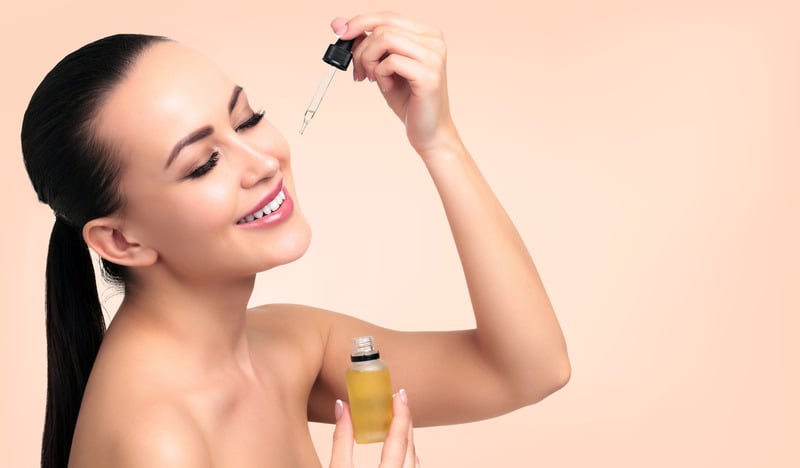Facial oils have become a popular addition to skincare routines, and for good reason. These oils offer a multitude of benefits, from boosting hydration to providing essential nutrients that promote healthy, glowing skin. This article explores the benefits of facial oils, how to use them effectively, and some personal insights to help you incorporate them into your skincare routine seamlessly.
Understanding Facial Oils
What Are Facial Oils?
Facial oils are concentrated plant-based oils specifically formulated for use on the face. They are rich in essential fatty acids, vitamins, and antioxidants, which help nourish and protect the skin. Unlike synthetic oils, natural facial oils are easily absorbed and do not clog pores when chosen correctly.
Benefits of Facial Oils
1. Hydration and Moisture Retention
Facial oils are excellent for hydrating the skin. They create a barrier that locks in moisture, preventing dehydration and promoting a healthy glow. According to Dr. Barbara Sturm, a renowned dermatologist, facial oils help to strengthen the skin’s natural moisture barrier, which is essential for maintaining skin hydration.
2. Nourishment and Protection
Facial oils are packed with nutrients that nourish the skin and protect it from environmental damage. Oils containing antioxidants and essential fatty acids can help combat free radicals and reduce signs of aging, as shown in a study published in The International Journal of Cosmetic Science. These nutrients also support the skin’s natural repair processes, enhancing overall skin health.
3. Balancing Oil Production
Contrary to popular belief, facial oils can be beneficial for oily skin types. Using the right oil can help balance the skin’s natural oil production. Non-comedogenic oils like jojoba or tea tree oil have antibacterial properties and do not clog pores, making them ideal for oily and acne-prone skin. Dr. Ava Shamban recommends these oils for their ability to regulate sebum production and reduce acne.
4. Enhancing Skincare Absorption
Facial oils can enhance the absorption of other skincare products. They help deliver active ingredients deeper into the skin, making them more effective. This is because oils can penetrate the protective barrier of the skin, allowing for better nutrient delivery, as noted by Dr. Whitney Bowe.
How to Use Facial Oils
Choosing the Right Oil
Selecting the right facial oil depends on your skin type and concerns. Here are some popular options:
- For Dry Skin: Argan oil, rosehip oil, and marula oil are deeply hydrating and rich in vitamins and antioxidants.
- For Oily Skin: Jojoba oil, tea tree oil, and grapeseed oil help balance oil production and have antibacterial properties.
- For Sensitive Skin: Chamomile oil, calendula oil, and hemp seed oil are gentle and soothing, reducing inflammation and redness.
- For Aging Skin: Rosehip oil, pomegranate oil, and sea buckthorn oil are packed with antioxidants and essential fatty acids that help combat wrinkles and fine lines.
Application Tips
To get the most out of your facial oil, follow these simple steps:
- Cleanse: Start with a clean face to ensure the oil can penetrate deeply and work effectively.
- Tone: Apply a toner to balance your skin’s pH and prepare it for better absorption of the oil.
- Serum: If you use a serum, apply it before the facial oil. The oil will help seal in the serum’s active ingredients.
- Oil Application: Take a few drops of the oil and warm it between your palms. Gently press the oil into your skin, focusing on dry areas. Avoid the delicate eye area to prevent irritation, as advised by Dr. Zoe Draelos.
- Moisturize: If you need extra hydration, follow up with your regular moisturizer to lock in all the benefits.
Frequency of Use
Facial oils can be used daily, but it’s essential to listen to your skin. If you have dry skin, you might benefit from using oil both morning and night. For oily or combination skin, nighttime application might be sufficient. Start with a few times a week and adjust based on your skin’s response.
Personal Insights and Experiences
Incorporating facial oils into my skincare routine has been a game-changer. Initially, I was hesitant to use oils on my combination skin, fearing they would make it oilier. However, I discovered that using a lightweight oil like jojoba oil at night balanced my skin and reduced the oiliness in my T-zone. It also helped soothe and heal occasional breakouts.
One evening, after a particularly stressful week, I treated myself to a mini facial at home. I used a rosehip oil, known for its anti-aging properties, and gave myself a gentle face massage. The experience was incredibly relaxing, and I woke up with noticeably plumper, more radiant skin. This routine has since become a regular part of my self-care regimen, especially on weekends when I have a bit more time.
Additional Tips for Radiant Skin
Exfoliation
Regular exfoliation helps remove dead skin cells and allows facial oils to penetrate more effectively. However, avoid over-exfoliating as it can damage the skin barrier. Aim to exfoliate 1-2 times a week using a gentle scrub or an exfoliating mask.
Hydration from Within
Staying hydrated by drinking plenty of water is crucial for maintaining healthy skin. Hydration supports skin elasticity and helps flush out toxins that can contribute to dullness and breakouts.
Diet and Lifestyle
A balanced diet rich in fruits, vegetables, and healthy fats can significantly impact your skin’s health. Foods high in antioxidants, like berries and leafy greens, help protect the skin from environmental damage. Additionally, managing stress through activities like yoga, meditation, or even a daily walk can improve your overall skin health.
Sun Protection
Always use sunscreen during the day, even if you’re using facial oils. Sun exposure can cause damage that counteracts the benefits of your skincare routine. Opt for a broad-spectrum sunscreen with at least SPF 30 to protect against both UVA and UVB rays.
Conclusion
Facial oils are a versatile and beneficial addition to any skincare routine. They provide deep hydration, nourish the skin with essential nutrients, and enhance the effectiveness of other skincare products. By choosing the right oil for your skin type and incorporating it into a consistent skincare regimen, you can achieve a healthy, radiant complexion.
Remember, skincare is a personal journey. What works for one person might not work for another. Be patient and give your skin time to adjust to new products. With the right approach and a bit of experimentation, you’ll find the perfect facial oil to meet your skin’s needs and help you achieve that coveted glow.



